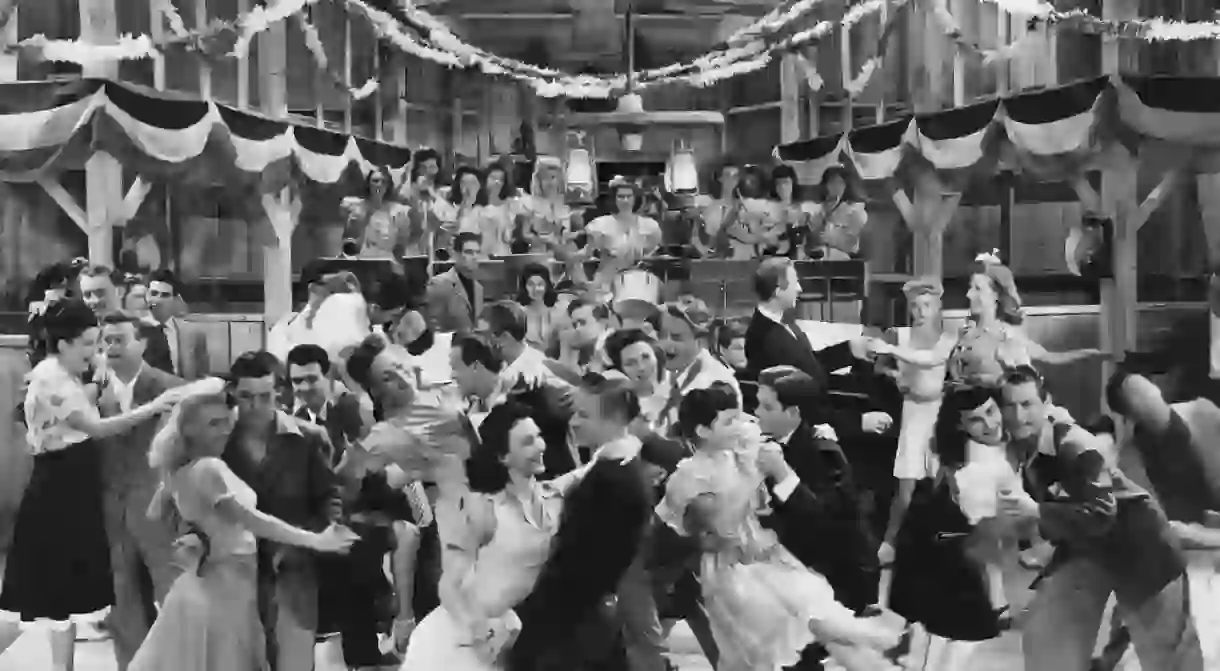New York City's Nightlife Is Fighting to Kill the Racist, 'No Dancing' Cabaret Law

If you’ve ever danced inside of a bar or a club in New York City, you almost certainly did so illegally.
It’s hard to imagine such a statement could be true in conjunction with a city like NYC, where most bars and clubs are open to 4am and after hours parties thrive. It’s as bizarre as the ban against waking a bear for a photograph in Alaska (who in the 200 years since the first partially successful photograph was taken is stirring sleeping bears that makes this necessary?) or the fact that you can be fined $500 for sending someone pizza unknowingly in Louisiana (the real criminal here is the person upset by free pizza; lock that person up).
But, like the many other obscure laws still standing in the 50 states, New York City’s Cabaret Law has managed to survive largely in part to the efforts of hateful people who clawed their way into the upper echelons of government.
Enacted in 1926, the Cabaret Law arrived during Prohibition under Mayor Jimmy Walker and was used to target black jazz clubs, along with speakeasies illegally serving alcohol. The law details a variety of establishments in which three or more people dancing is unlawful:
“Public dance hall.” Any room, place or space in the city in which dancing is carried on and to which the public may gain admission, either with or without the payment of a fee.
“Cabaret.” Any room, place or space in the city in which any musical entertainment, singing, dancing or other form of amusement is permitted in connection with the restaurant business or the business of directly or indirectly selling to the public food or drink, except eating or drinking places, which provide incidental musical entertainment, without dancing, either by mechanical devices, or by not more than three persons.
An extension of the law, which was abandoned in the late ’80s, limited permitted instruments to strings, keyboards, and electric soundsystems, as well as reducing the number of players to three at any time. As one can imagine, without wind, wooden, or brass instruments, performing jazz was extremely difficult.
Thump dove into the law’s history and impact on NYC in March, explaining the difficulty of acquiring a “Cabaret License”:
Before the license is granted, applicants must jump through several bureaucratic hoops, like seeking approvals from the building and fire departments, installing surveillance cameras, and paying fees ranging from $300 to $1,000. As of last year, according to the city’s department of consumer affairs, only about 127 of the city’s more than 12,000 clubs and bars actually have cabaret licenses.
In the years since its creation, the law was extended to target the LGBTQ+ and brown communities. In the ’90s, the law was resurfaced by Mayor Rudy Giuliani in order to support his “quality of life” campaign, dealing out fines and closures to bars and clubs without cabaret licenses. As journalist (a former columnist for The Village Voice) and actor Michael Musto explained it, Giulianai “demonized nightlife as our city’s bastard child, trying to smooth it over in order to make things safe for tourists and co-op owners.”
Now, in 2017, the law still stands, and a new effort has been launched to finally put an end to the “No Dancing” law. In March, an organization under the name Dance Liberation Network launched a campaign called Let NYC Dance that includes a petition to draft a repeal bill and a number of events.
“Trump’s inauguration really triggered it,” Dance Liberation Network co-founder Frankie Decaiza Hutchinson told The Fader. “It was that week when we started talking about it actually. We decided that now is the time to repeal this law.”
On Thursday evening, Dance Liberation Network, in conjunction with Boiler Room, is hosting its next event at House of Yes at 10 pm.
“Musically, the night will unify a broad range of DJs/performers to illustrate the diversity of NYC’s sound, spanning the range of generations of music and people who have been affected by this law. Each DJ will celebrate a different generation of NYC sound, grounding the event in a historical and educational context. Dancing is part of the fabric of NYC and they want to highlight the absurdity it being illegal to do so,” a press release reads.
The lineup includes Jonathan Toubin (1960s), Mobile Mondays DJs (1970s), Jellybean Benitez (1980s), Anané Vega (1990s), Juan Maclean (2000s), and Juliana Huxtable (2010s).













